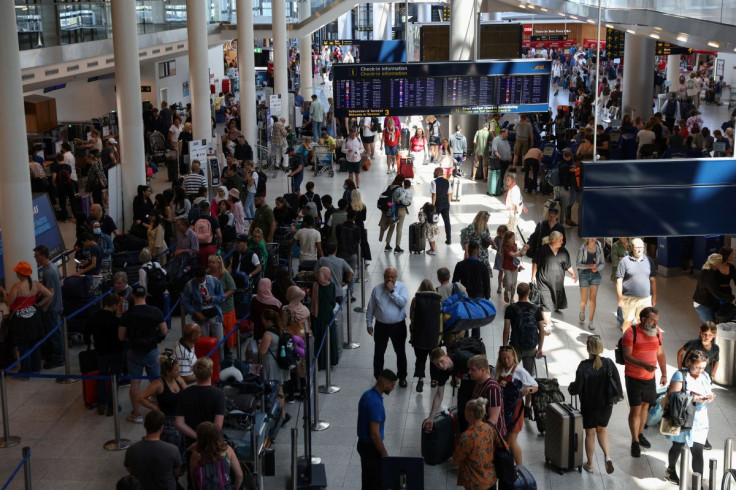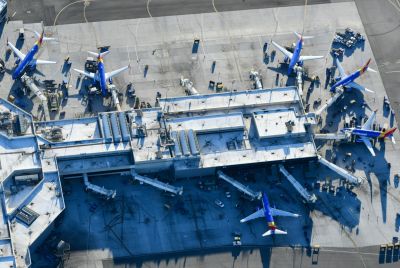A comprehensive guide to tipping etiquette for business travellers
The essential tips for navigating tipping customs in different continents during business travel, emphasising cultural sensitivity and professionalism.

Navigating the world of business travel requires a keen understanding of etiquette and professionalism.
And to no surprise, tipping plays a significant role in establishing positive relationships and demonstrating respect for service providers. As a business traveller, it's crucial to be well-informed about tipping customs in different countries.
When travelling abroad, it's essential to familiarise yourself with the local customs and etiquette, including tipping practices. Tipping norms can vary significantly from one continent to another, and even within countries, making it essential to understand etiquette.
Tipping customs in popular Business Travel destinations
Europe: Tipping customs in Europe differ from country to country with the general consensus being based on the establishment you are in. On the whole, however, a 10 per cent tip is customary for restaurants throughout the continent, but not always required. It's important to note that some countries may include a service charge in the bill, especially in touristy areas. In addition, it is customary to leave €1-€2 for hotel staff, such as porters, and rounding up the fare for taxis is common practice.
Asia: Tipping practices in Asia are often distinct from other parts of the world. In many Asian countries, tipping is not customary and can even be considered insulting. It's crucial for travellers to be aware of these cultural differences to avoid inadvertently causing offence. Hotel porters in countries such as China, Japan, South Korea, Indonesia and the Philippines do not expect tips, but a gratuity of around $1 per bag may be given. Tipping taxi drivers is generally not expected however and you can expect to pay the desired price. Thus, research is important to see the nuances of tipping customs across various Asian destinations, emphasising cultural sensitivity and providing practical advice for travellers.
North America: Tipping is deeply ingrained in North American culture, with many service workers relying on tips as a significant part of their income. Visitors to this continent should be prepared for higher tipping expectations compared to other regions. Whether dining at restaurants, taking taxis or utilising hotel services, tipping is considered customary and appreciated.
South America: In South America, tipping practices vary across different countries. In Peru, Argentina and Brazil, a 10 per cent tip for restaurant service is considered standard, with rounding up the fare being sufficient for taxi drivers. When it comes to hotel porters and maids, specific gratuities are suggested in each country. For instance, in Peru, it is customary to pay around three Soles per bag, while in Argentina, the range is typically one to three Pesos. However, these both differ from places such as Brazil, which suggests a gratuity of R$5-R$6.
Africa: Tipping practices in Africa can differ significantly from one country to another. In Egypt, Kenya and Tunisia, a 10 per cent tip is customary for restaurants, whereas South Africa and Morocco often expect a higher percentage, up to 15 per cent. Tipping taxi drivers is prevalent in South Africa, with a suggested 10 per cent gratuity. However, rounding up the fare is generally sufficient in Tunisia and Morocco, while tipping is not expected at all in Egypt and Kenya as a result of cultural differences between them.
Oceania: Unlike other continents, tipping is not an obligation in Australia and New Zealand. While there is no expectation to tip in these countries, travellers may choose to reward exceptional service by leaving a few dollars. This section provides a detailed overview of tipping customs in Oceania, emphasising the absence of a tipping culture and guiding travellers on when and how to express appreciation for exceptional service.
Practical tips to enhance your business travel experience
There are some practical tips anyone can follow, when they are abroad, to ensure they are following the right cultural norm in regard to tipping. Here are some:
Familiarise yourself with your company's business travel policy: Before your trip, carefully review your company's guidelines for travel. This is as understanding the process for booking trips, which expenses are eligible for reimbursement and how to navigate the expense reporting system can result in you saving money as a result of company policy, make your overall trip a lot easier on the bank account whilst ensuring a smooth and compliant travel experience.
Safeguard essential items in your carry-on bag: When embarking on a business trip, it's crucial to ensure the safety and accessibility of your vital documents and belongings. We've all heard tales of misplaced laptops, stolen wallets, and missing phones that can turn an otherwise smooth journey into a nightmare. By prioritising your essentials, selecting the right carry-on bag, organising with compartments, adding locks, keeping items within reach, backing up your data, and staying vigilant, you can protect your valuables and ensure a successful business trip. Remember, a little preparation goes a long way in safeguarding your peace of mind.
Carry sufficient cash: While card payments are widely accepted in many parts of the world, having cash on hand is essential, especially in countries where cash is the preferred method of gratuity. Exchange currency before your trip to ensure you can tip appropriately and smoothly navigate transactions where cash is required.
Leverage helpful travel apps: In today's digital age, travel-related apps have revolutionised the world of business travel. These innovative applications enhance your experience by simplifying expense management, flight and hotel bookings, transportation arrangements, and locating co-working spaces. Expense management apps make tracking receipts and generate reports effortlessly, while travel aggregators' apps streamline flight and hotel bookings with real-time updates and personalised recommendations.
Taxi apps like Uber and Lyft simplify transportation by providing estimated fares, driver tracking, and cashless payments. Meanwhile, apps dedicated to finding co-working spaces help you discover suitable workspaces on the go, complete with amenities and user reviews. Embrace these technological advancements to navigate business travel with ease, streamline arrangements, boost productivity, and make your trips more successful than ever before.
Respect cultural customs: Always remember that tipping customs can vary significantly across cultures. It is advised to research and respect local customs and traditions regarding tipping. For instance, most people do not know that in some Asian countries, such as Japan and China, tipping can be seen as insulting. This is why it is important to exercise caution and avoid tipping unless it is customary and appreciated in a specific location.
As a traveller, understanding tipping etiquette is essential to navigating global customs gracefully. By adhering to appropriate tipping practices, you can demonstrate respect for service providers and foster positive relationships during your international travels.
Additionally, always consider local customs and your company's travel policies to ensure a smooth and professional business travel experience. Thus, while tipping is a generous gesture, it is crucial to be mindful of cultural sensitivities and adapt accordingly.
If you are ever confused about the etiquette in the country you are travelling to or the preparation needed, remember to come back to this article and consult this guide to ensure you tip appropriately in the country that you are visiting.
© Copyright IBTimes 2025. All rights reserved.





















